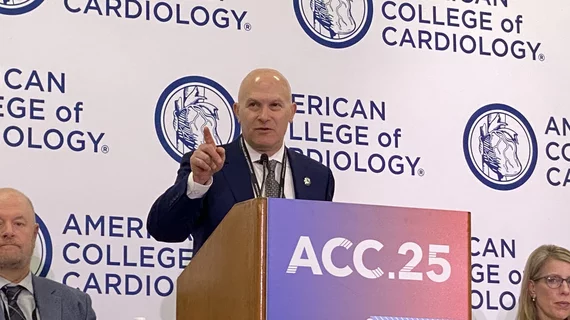Cardiologist begins term as ACC president with an eye on workforce issues, health equity and more
Christopher M. Kramer, MD, a longtime cardiologist and cardiac imaging specialist, has officially started his one-year term as the new American College of Cardiology (ACC) president.
Kramer currently serves as a professor and chief of the cardiovascular division at the University of Virginia School of Medicine. He has been an ACC member for 35 years, serving in a variety of leadership roles.
One of Kramer’s passions as a cardiac researcher has been the use of cardiovascular MR imaging to diagnose and manage heart patients. In fact, he was awarded the Gold Medal from the Society for Cardiovascular Magnetic Resonance in 2025 for his significant contributions to the field of cardiac imaging.
“I see significant challenges and opportunities for the field of cardiology in the coming years, including workforce issues, health equity, diversity and inclusion and AI-driven solutions, that need to be addressed to achieve ACC’s mission of transforming cardiovascular care for all,” Kramer said in an ACC statement. “I am looking forward to using my term as president to help ACC be a leader on these issues, while getting to know more of our inspiring, diverse membership and hearing their concerns and achievements across the U.S. and throughout the world.”
Other new ACC officers for 2025-2026 include:
- Roxana Mehran, MD – Vice President
- Samuel O. Jones, IV, MD, MPH, and Geoffrey A. Rose, MD – Board of Trustees Members
- David E. Winchester, MD, MS – Board of Governors Chair
- Renuka Jain, MD – Board of Governors Chair-elect
The two most recent ACC presidents were Cathleen Biga, MSN, and B. Hadley Wilson, MD.

